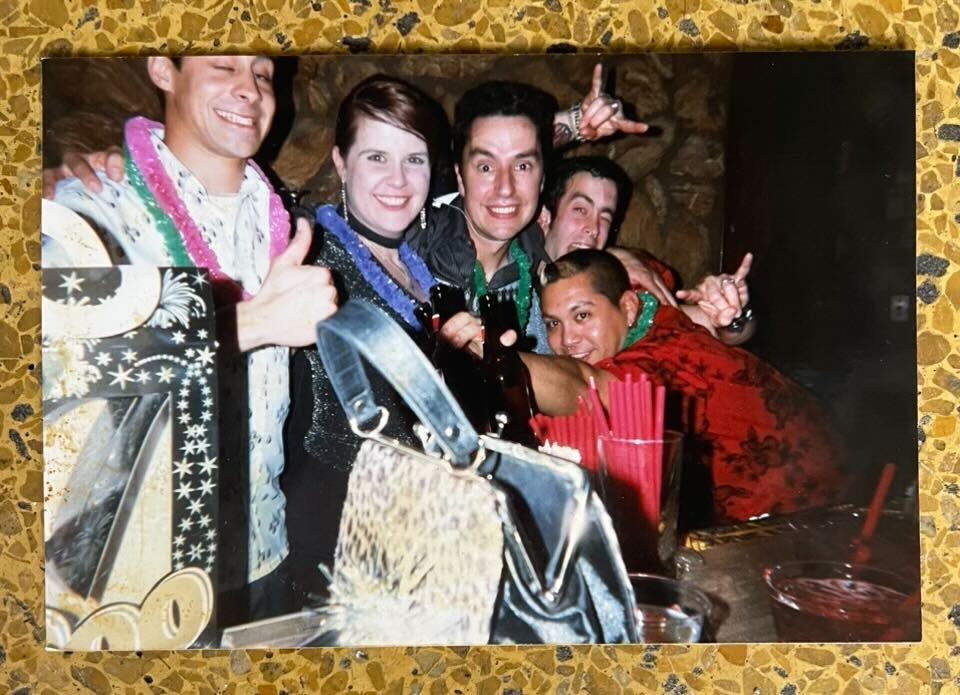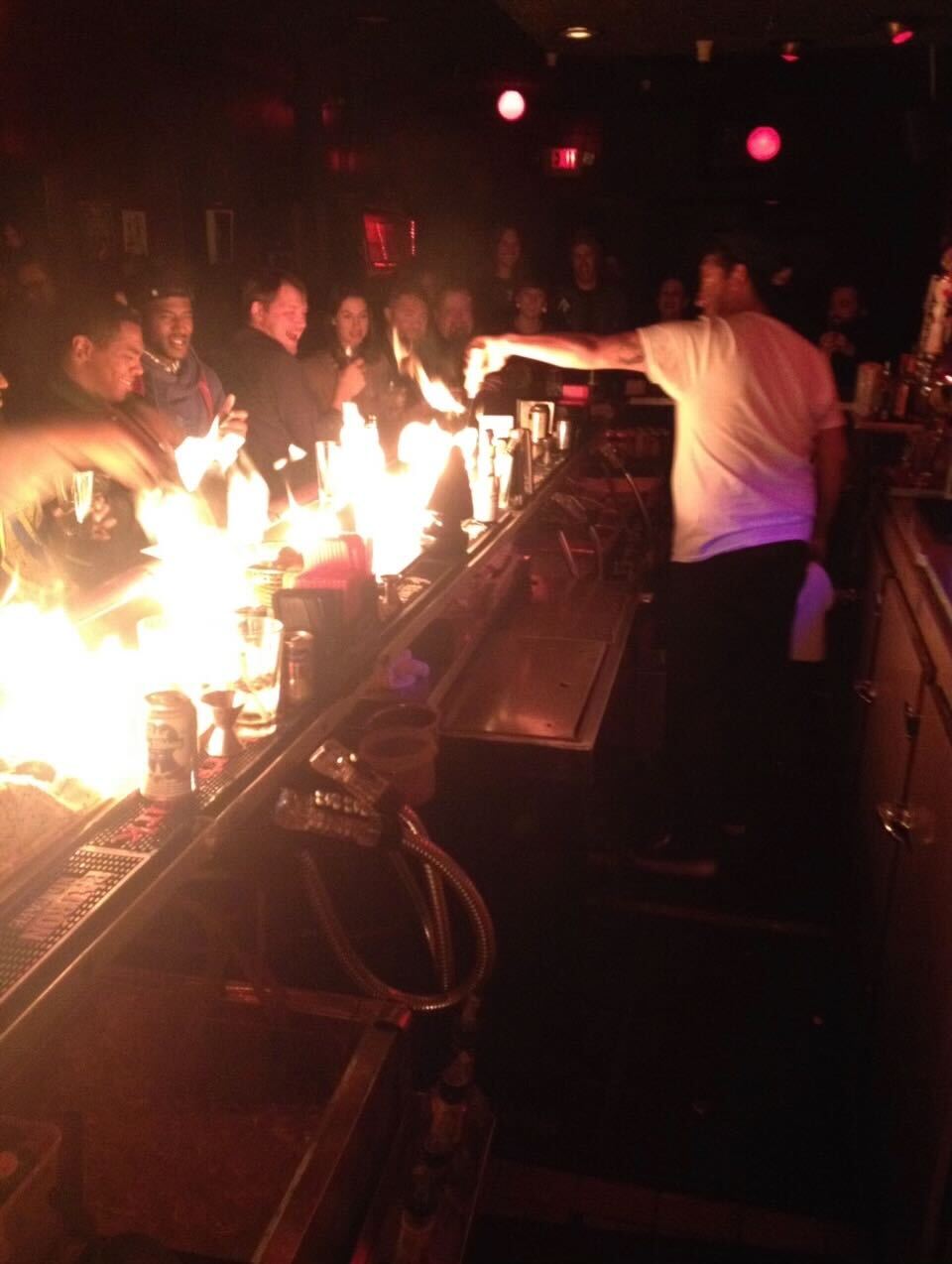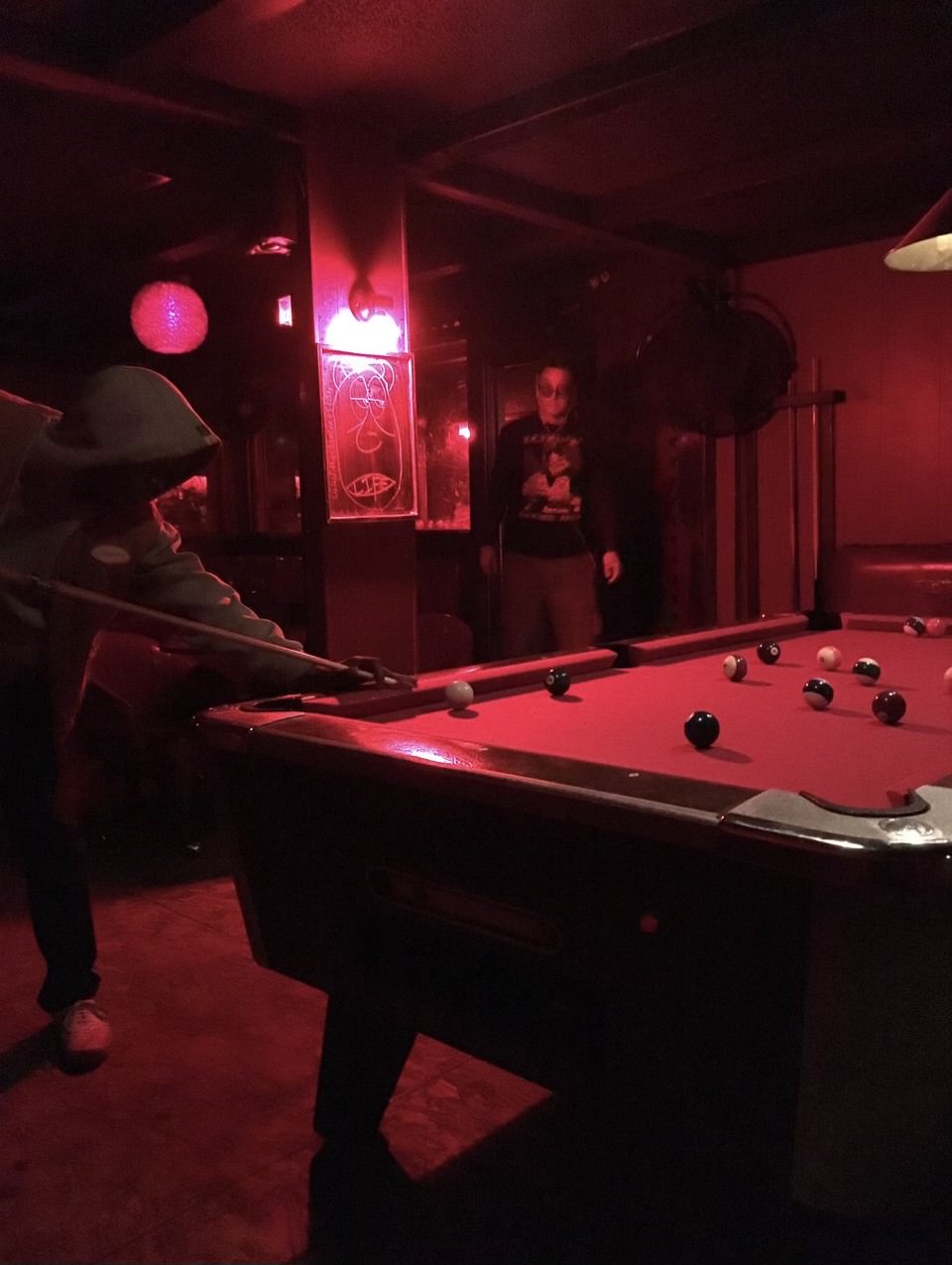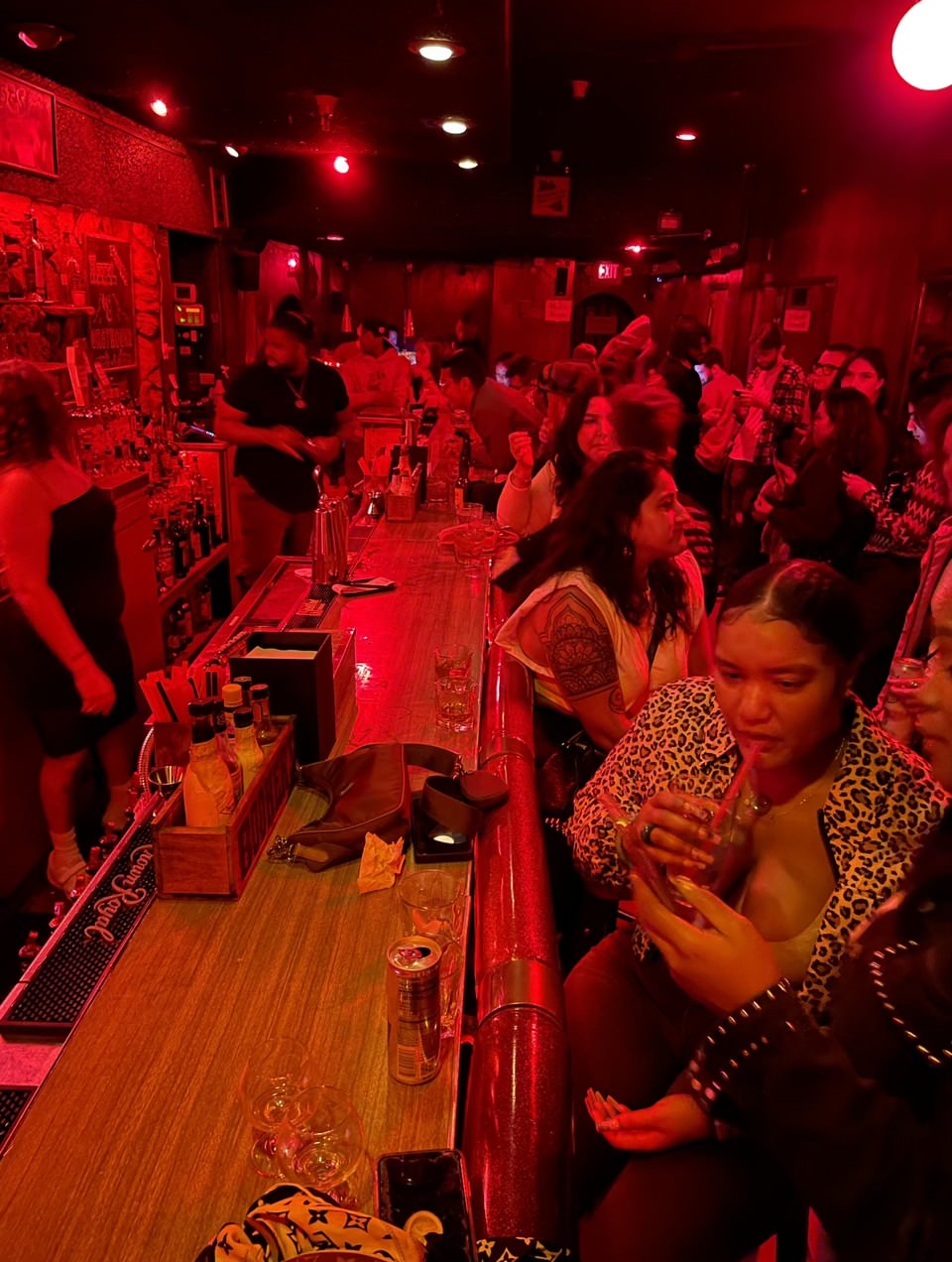Ruby Room, the treasured dive bar on 14th Street known for its crimson luminescence and cheap drinks, will announce “last call” for the final time on New Year’s Eve.
UPDATE on Feb. 23, 2024
Oakland’s Ruby Room is reopening under new ownership
The new owners want to keep the bar’s legacy alive and rehired several former employees.
Keep readingThe bar, a go-to for the East Bay Rats Motorcycle Club—their clubhouse in West Oakland shuttered in 2019—and known for adjoining rooms for smokers and pool players along with 80- and 90-cent shots on special event nights, will close just shy of a quarter century in business.
Rather than mourn the closing, the bar’s owners are encouraging dedicated patrons to celebrate the good times and make a few more before the end of the year. It’s time to move on, they say.
Alfredo Botello opened the Ruby Room in 1999 with his then-business partner, Liad Mawikunich. Years later, after Mawikunich left the business, Trevor Latham (then president of the East Bay Rats) and Tim Tolle joined as co-owners. The three partners also own Radio Bar on 13th Street. There are no plans to close Radio, according to Botello.

When The Ruby Room opened, it was an oasis in the desert of Oakland’s nightlife scene. At the time, East Bay residents felt compelled to travel to San Francisco for vibrant bars and clubs. Botello was one of them. He would ride BART into the city but felt limited in how late he could stay out due to the train’s midnight cutoff.
“We did feel a real need here in Oakland,” Botello told The Oaklandside on a phone call on Monday night. “That was the genesis of the bar.”
When it first opened, Ruby Room attracted non-pretentious folks, often artists, and quickly filled a void as a place where people could hang out and get a cheap drink. In those early days, patrons could find Latham working as a bouncer and Bolle and Botello behind the turntables.
East Bay Yesterday journalist Liam O’Donoghue was one of those creatives with many memories of the sanguine-shaded bar.
“The dancefloor is small, the drinks were sometimes too strong, but that’s what made it great,” O’Donoghue said. “That is what your 20s are all about. It’s going to these dives. It was always informal, and you didn’t have to dress a certain way. It was eclectic and had good music. Ruby Room was grungy but in a good way.”
According to O’Donoghue, the bar also served as a haven and preferred watering hole for activists during demonstrations and civil unrest.
“You’d end up at Ruby or Radio when the protest winded down and grab a drink to recap,” he said. “It was one of those bars.”


Botello said that while the bar has weathered additional challenges since the pandemic decimated Oakland’s nightlife, the primary reason for the closure is the owners felt the time was right.
“We’re aged out,” he said. “We’re north of 50.” Tolle splits his time between Oregon and Mexico, Latham moved with his family to Reno, and Botello says he can’t stay out past 2 a.m. like he did when he was younger.
Similar to other bars and restaurants in Oakland, he added, they’ve dealt with street crime, a lack of police response, and evolving customer patterns and habits.
“The biggest challenge has been figuring out the new normal,” said Botello.
Pre-COVID, the business’ cadence was more predictable, so staffing and stocking were easier to manage. Since the pandemic, the days with the most customers have become more random and are not always on the weekend.
“Oakland is different in each of its pockets. You go to Temescal, and it’s lively, feels safe, and has plenty of life on the street at night,” he said. “Ruby Room has always been a destination bar, meaning it’s not in the middle of Lakeshore Avenue, Telegraph, or Broadway. You have to want to go there.”
Since COVID, Botello said, there’s been an increase of shuttered and abandoned storefronts where crowds gather, creating “an intimidating presence” for patrons at the bar. “The crime and financial reasons, that’s added pressure [to close the bar].” He added that the glass window at the bar had to be boarded up to prevent after-hours vandalization.

In the two decades since Ruby Room opened, Botello has heard countless anecdotes from folks who have supported the popular dive bar. In 2017, East Bay Express called it the “Best Place to Drown in Well-Priced Drinks and a Red Hue.”
“Once, two patrons figured out I was the owner,” Botello recalls. “They were so grateful, and I’ll never forget what they said. They said: ‘This place means everything to me. This is Oakland’s living room.’ I took so much pride and joy in it because when I hear the word, living room, I think of comfortable, friends and family, cozy, approachable, welcoming.”
Botello also recalls that in 2015, the staff got matching tattoos of little rubies in honor of the bar. “I was so touched because I thought: ‘Wait a minute, what other business do the employees love so much that they want to get a tattoo of it?'”
Since Botello doesn’t want this to be a somber goodbye, he is looking forward to hearing more stories from other patrons who visited Ruby Room at one point or another. Some locals have already started sharing their anecdotes on Reddit.
“Anybody who has been there, who’s curious about this place, just come by,” he said. “Enjoy the time we have.”
Correction: In a previous version of this story, Tim Tolle’s last name was misspelled.

